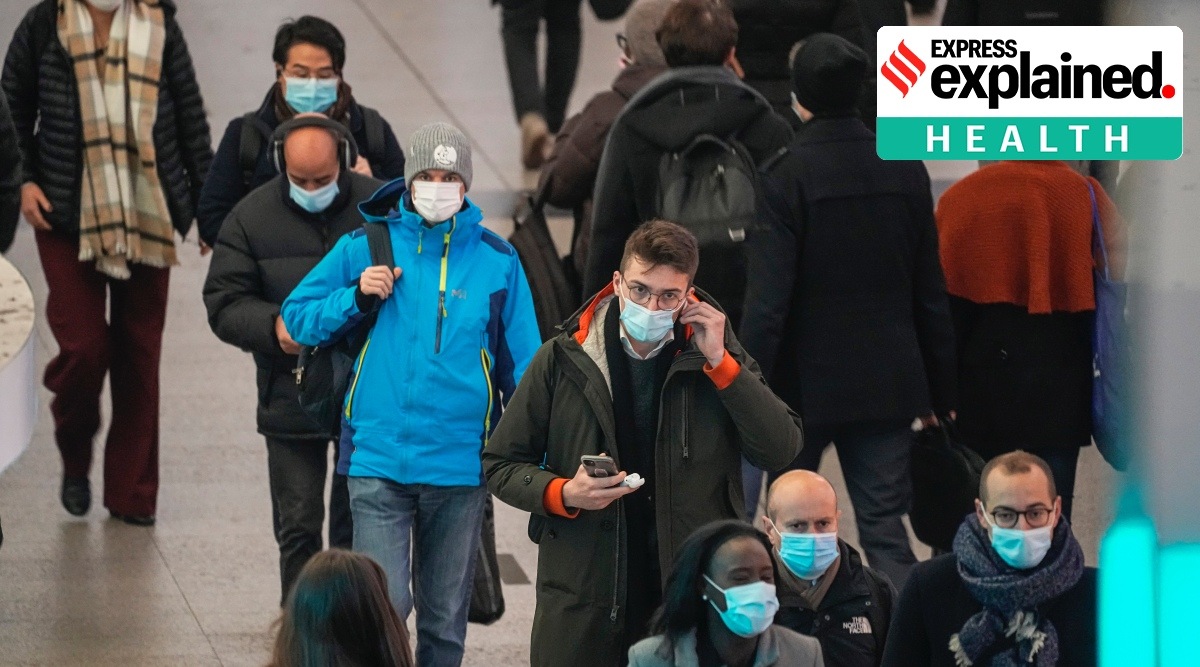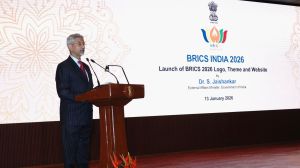In the latest weekly Covid-19 epidemiological update, the World Health Organisation (WHO) said that given the predominant circulation of the Delta variant in many countries, it is too early to draw a conclusion on the impact of the new Omicron variant on the global epidemiology of Covid-19.
The global health body further highlighted that while several crucial questions about Omicron remain unanswered, more data will continue to emerge in the coming weeks.

At the same time, WHO has also presented an update on the current situation on four key issues on Omicron — transmissibility, clinical severity, risk of reinfection and the potential impact of the vaccines.
What has WHO said on the impact Omicron is likely to have on the epidemiology?
WHO said that in South Africa, where the new variant of concern (VOC) was first reported, fresh Covid-19 cases have continued to surge. As many as 62,021 new cases were reported between November 29 and December 5, a 111% increase compared to the previous week. More significantly, the country has reported an increase in the test positivity rate from 1.2% the week beginning November 7 to 22.4% in the week beginning December 2.
WHO also noted that a huge increase in the weekly number of cases has also been seen in some countries neighbouring South Africa, including Eswatini (1,990%), Zimbabwe (1,361%), Mozambique (1,207%), Namibia (681%) and Lesotho (219%).
“These other countries have very low vaccination coverage ranging from 12.1% of the total population fully vaccinated in Namibia to 26.7% in Lesotho. In South Africa, 25.2% of the total population is fully vaccinated,” WHO said.
“While drivers of these increases remain unknown, it is plausible that the spread of Omicron in combination with enhanced testing following the declaration of a VOC, play a role, together with the relaxation of public health and social measures (PHSMs) and sub-optimal immunisation coverage,” WHO highlighted.
Story continues below this ad
On the global data, WHO said as on December 7, the Omicron variant has been confirmed in 57 countries. “However, given the predominant circulation of the Delta variant in many countries, particularly in countries in the European Region and in the United States of America, it is too early to draw any conclusions about the impact Omicron will have on the global epidemiology of Covid-19,” it said.
What could be the impact of the new variant on the transmissibility?
WHO said that at present, while “there seems to be evidence that the Omicron may have a growth advantage over other circulating variants, it is unknown whether this will translate into increased transmissibility”.
It highlighted the European Centre for Disease Prevention and Control’s possible forecast on Omicron that if 1% of SARS-CoV-2 infections are due to the Omicron variant, it will become dominant in Europe, comprising less than 50 per cent of the new infections by January 1, 2022, with a growth advantage of less than 120% and by March 1, 2022, with a growth advantage of less than 30%.
“Ongoing and planned epidemiological studies, including detailed cluster investigations, contact-tracing and household transmission studies, coupled with neutralisation studies from people previously vaccinated or infected and studies of vaccine effectiveness will help improve our understanding of the interplay between increased transmissibility and immune escape as drivers of increased transmission,” WHO concluded.
Story continues below this ad
What could be the likely impact on the severity of the disease and reinfection?
WHO underlined that currently only limited data are available on clinical severity making it “challenging to assess any changes in disease severity with the Omicron variant”.
However, as of December 6, WHO said all of the 212 confirmed cases identified in the 18 European Union countries — for which there was information available on the severity — were asymptomatic or mild.
It also noted that South Africa has seen an 82 per cent increase in hospital admissions due to Covid-19 — from 502 to 912 — during the week (November 28 and December 4). However, the global health body said it is yet to be known how many cases of hospitalisation are linked to the Omicron variant.
 “Even if the severity is equal or potentially even lower than for Delta variant, it is expected that hospitalizations will increase if more people become infected and that there will be a time lag between an increase in the incidence of cases and an increase in the incidence of deaths,” WHO highlighted.
“Even if the severity is equal or potentially even lower than for Delta variant, it is expected that hospitalizations will increase if more people become infected and that there will be a time lag between an increase in the incidence of cases and an increase in the incidence of deaths,” WHO highlighted.
Story continues below this ad
On reinfection, it said preliminary analysis “suggests” that the mutations present in the Omicron variant “may reduce neutralising activity of antibodies resulting in reduced protection from natural immunity”.
“This may explain why the variant seems to be spreading rapidly in a highly immune population such as South Africa, in which current vaccination coverage in adults is about 35%, but in which seroprevalence levels are estimated to be as high as 60-80% due to past infections, according to recent epidemiological studies and modelling,” WHO said.
WHO said that initial modelling studies from South Africa have found an increased risk of re-infection, adding, this information only offers an initial assessment of the risk of re-infection.
“..however, further studies are needed to confirm this, including the ability of the Omicron variant to infect or re-infect those who have been vaccinated, as well as to determine the severity of these breakthroughs or re-infections”.
Story continues below this ad
How may the Omicron variant impact the treatment and vaccines?
WHO reiterated that Interleukin-6 Receptor Blockers and corticosteroids are expected to continue to be effective in the management of patients with severe diseases. On vaccines, it said there is a “need for more data” to examine whether the mutations “may result in reduced protection from vaccine-derived immunity and data on vaccine effectiveness, including the use of additional vaccination doses”.
Newsletter | Click to get the day’s best explainers in your inbox









































